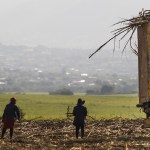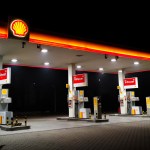POWER CRISIS
Pick n Pay backs out of mega distribution centre deal, blaming economy and power crisis

The retailer has opted to rent rather than buy the distribution centre near the OR Tambo International Airport in Kempton Park.
A month after its CEO issued a stark warning about the state of the South African economy and the impact of rolling blackouts on its bottom line, Pick n Pay has backed out of buying a majority stake in a distribution centre at the Eastport Logistics Park in Kempton Park.
The deal would have seen the retailer paying R1.3-billion for 60% of the 164,000m2 distribution centre, which has space for about 95,000m2 of dry goods and 48,000m2 for cold storage, with the remainder comprising room for returns, offices, gatehouse and aerosol storage. The mega distribution centre also has its own access off the R21 highway.
The initial agreement, announced on 17 May 2021, would have seen the retailer taking a 60% share in the distribution centre through a separate special purpose company, with Fortress retaining a 40% undivided share.
Pick n Pay would then have rented the property for 15 years, on an initial 7% yield on the total development cost.
However, PnP has now backed out of the earlier deal and Fortress will retain 100% of the asset, which Pick n Pay will rent based on an initial yield of 8.5% on the total development cost from 1 June 2023. It will also be liable for all the running costs of the leased property.
David North, chief business transformation officer for PnP, told Daily Maverick that all businesses are facing substantial unforeseen costs due to rolling blackouts.
“We expect this pressure to continue. As a result, we are taking a more prudent approach to capital investment. By concluding this agreement with Fortress, we can deliver all the benefits associated with our move to Eastport, while being able to focus our capital investment on customer and sales growth through new stores and store refurbishments.
“We thank Fortress for their flexibility and look forward to maintaining a fruitful partnership with them in the coming years.”
In a Sens update, Fortress announced it was to retain full ownership of the newly developed distribution centre under the amended agreement, with the loan-to-value ratio expected to remain at around the same level of 37.5% (based on management accounts) as was reported at 31 December 2022.
The current estimated total cost of the development is about R2.13-billion. Pick n Pay will retain a right of first refusal on any potential disposal of the asset outside of the Fortress Group.
“Fortress wishes Pick n Pay well in their new super distribution centre at Fortress’ Eastport Logistics Park,” the statement read.
Centralisation
The Eastport centre, which consolidates three other distribution centres in the region, allows PnP to achieve higher inland centralisation (which was previously constrained by a lack of capacity at Longmeadow) and enables it to bring down logistics costs.
On 4 May, during an investor presentation after the release of Pick n Pay’s full-year results, the retailer’s chairperson, Gareth Ackerman, said rolling blackouts had cost the company R522-million, or R60-million a month, to burn diesel.
That additional cost had added massively to Pick n Pay’s costs in recent months, which has made the year under review an “extraordinarily challenging time”.
PnP, which has a market cap of R18.74-billion, is ranked as Africa’s strongest brand, with a Brand Strength Index score of 94 out of 100 and a corresponding AAA+ rating.
The Brand Finance Africa 200 2023 report, released on 1 June 2023, said the retailer has seen a 14-point BSI increase since last year to clinch the top spot for brand strength.
It is one of nine African brands to achieve the elite AAA+ rating, five of which came from the retail sector.
Retailers have spent billions of rands since September last year to keep their stores powered and stop food from going to waste.
Shoprite said when blackouts began ramping up last year, it was costing the retailer about R100-million a month; by January 2023, their generators’ additional diesel needs were north of R150-million.
Diesel has now become its “overpowering cost” – amounting to an additional R465-million over the past six months.
In March, Woolworths revealed that it had spent almost R90-million on powering its stores over six months.
The Spar Group, reported Moneyweb, estimated “the added cost of diesel incurred by our retailers required to run generators during the period (six months to end March), amounted to more than R700-million”. DM

















 Become an Insider
Become an Insider
Comments - Please login in order to comment.